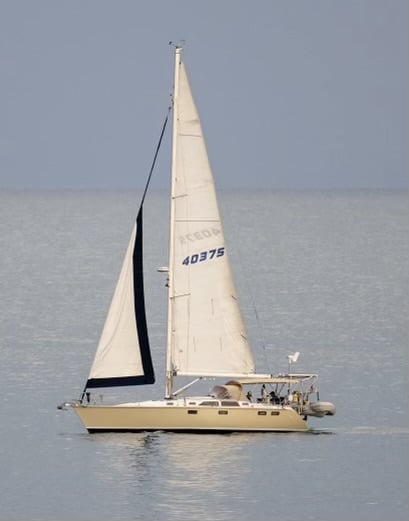If you want to take someone sailing on a boat and you ask them if they can swim, what exactly are you asking? Everyone can float if they have a life jacket right?
My understanding is that someone is being asked if they can take care of themselves and/or tread water until they are rescued and/or if they are a strong swimmer, but I could be wrong.
Even with a life jacket you might still have to swim back to the boat. Or maybe they want to drop anchor at some point and let everyone have a little swim? Seems like a basic safety/planning kind of question since you’d be in the middle of a body of water
Seems like a basic safety/planning kind of question since you’d be in the middle of a body of water
I think so, too. Swimming with a life jacket in my opinion is more difficult than swimming without one. However, I would think that treading water is more difficult than swimming with a life jacket so maybe if swimming with a life jacket is the expectation, then that’s ok.
If the boat goes down you could need a life jacket to stay afloat longer than you could swim. But it would also be helpful if you can make your way through the water in a purposeful direction. Ideally everyone wears flotation gear just in case. But it’s especially important for a person who isn’t a good swimmer. Or at least fat enough to float, like Pippi Longstocking’s father.
I would not invite someone on a boat I was responsible for if they admitted they could not swim at at least a basic level.
That ability has nothing to do with life jackets
As someone who sails with absolute goofballs, people don’t wear jackets, boats flip, stuff falls out etc all the time. It’s fine to not know how to swim, we just need to know ahead of time so we can prioritize things when it goes south.
I think the implication is that they want to know if you can swim.
Floating doesn’t mean not panicking
Yeah, plus being able to swim means being able to maneuver with the lifejacket on in addition to basic water safety knowledge. Being able to maneuver a short distance with a life jacket makes getting back on the boat s lot easier.
If you want to take someone sailing on a boat and you ask them if they can swim, what exactly are you asking?
Everyone can float if they have a life jacket right?The first question is all about the second one. If you can swim, you may be able to be on the boat with wearing a life jacket constantly (many folks don’t). But, if you can’t swim, they may want you in one the entire time; because, ya know, you’ll float rather than drown.
Because of the implication
If you want to take someone sailing on a boat and you ask them if they can swim, what exactly are you asking?
If they watch It’s always Sunny in Philadelphia

Why do we need a watermelon when we got Frank?
IMO: If they know how to handle themselves on a boat and what to do if they go overboard or an emergency occurs; gauge their level of knowledge and experience.
Being firm that safety is your number one priority when sailing and following up with direct questions to test them if they know the basics and they take them seriously.






